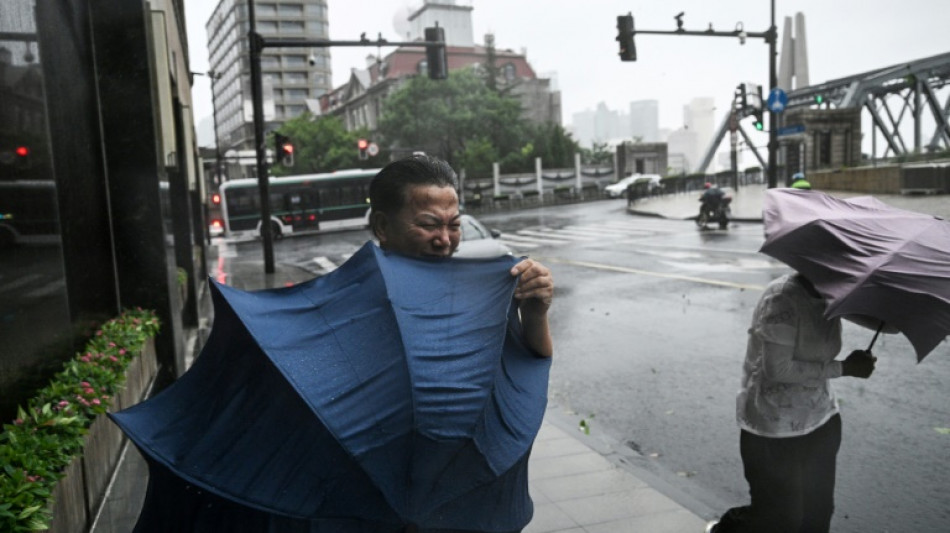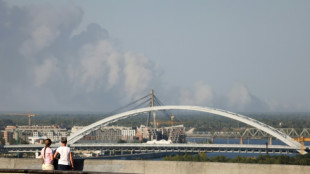

Bebinca strongest typhoon to hit Shanghai since 1949
The strongest storm to hit Shanghai in over 70 years made landfall on Monday, with flights cancelled and highways closed as Typhoon Bebinca lashed the city with strong winds and torrential rains.
A red alert is in place, and some coastal residents have been evacuated, city authorities said.
The typhoon landed early Monday morning in the coastal area of Lingang New City, in Pudong to the city's east, the China Meteorological Administration said.
It is the strongest storm to hit Shanghai since Typhoon Gloria in 1949, state broadcaster CCTV said shortly after Bebinca made landfall.
Many businesses were already closed for the Mid-Autumn Festival public holiday, and the city's 25 million residents have been advised to avoid leaving their homes.
All flights at Shanghai's two main airports are grounded, and ferry services and some trains have been suspended.
Highways were closed at 1:00 am local time (1700 GMT), and a 40 kilometre (25 mile) per hour speed limit is in place on roads inside the city.
At rush hour, live video feeds showed Shanghai's normally jammed roads almost empty of traffic, and its famed skyline obscured by thick fog.
Nine thousand residents have been evacuated from Chongming District, an island at the mouth of the Yangtze River, authorities said.
Footage from northern Baoshan District showed ferocious winds ripping through a line of trees on the riverbank.
Shanghai's flood control headquarters told CCTV they had already received dozens of reports of incidents related to the typhoon, mostly fallen trees and billboards.
CCTV broadcast footage of a reporter by the coast in neighbouring Zhejiang province, where waves pounded the craggy coastline under leaden skies.
"If I step out into (the storm), I can barely speak," the reporter said.
"You can see that the surface of the sea is just wave after wave, each higher than the last."
Another typhoon, Yagi, killed at least four people and injured 95 when it passed through China's southern Hainan island this month, according to national weather authorities.
Bebinca has also passed through Japan and the central and southern Philippines, where falling trees killed six people.
CCTV said Bebinca was expected to move northwest, causing heavy rain and high winds in Jiangsu, Zhejiang and Anhui provinces.
China is the world's biggest emitter of the greenhouse gases that scientists say are driving climate change and making extreme weather more frequent and intense.
F.Maldonado--LGdM




